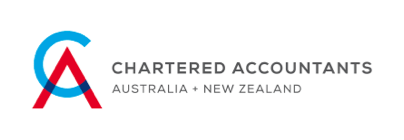As an AFS licensee, it’s important to ensure that you’re compliant in your financial reporting. AFSL compliance covers a range of requirements, including the preparation and lodgement of financial statements, the provision of annual reports, and the maintenance of accounting records. Failure to comply with AFSL financial reporting requirements can result in significant penalties, so it’s important to ensure that you’re up-to-date. There are a number of resources available to help you understand and meet your AFSL compliance obligations, but if you’re unsure about anything, be sure to seek professional advice.
Allen Audit & Advisory have established themselves as the most trusted financial auditors on the Gold Coast for years, offering clients services such as AFSL Audits and more. If you are not based on the Gold Coast not to worry, we provide our services remotely to businesses in both Australia and New Zealand. So what are you waiting for? Contact us today.
AFSL Compliance Obligations
ASIC defines the general obligation for AFS licensees as being “to provide efficient, honest, and fair financial services.” AFS licensees must comply with conditions found in both their AFS licence and the Corporations Act 2001.
But what exactly does that mean? The general obligations listed by ASIC include:
- conduct and disclosure
- the provision of your financial services
- the competence, knowledge and skills of your responsible managers
- the training and competence of your financial advisers and authorised representatives
- ensuring your financial advisers and authorised representatives comply with the financial services laws
- compliance, managing conflicts of interest and risk management
- the adequacy of your financial, technological and human resources, and
- your dispute resolution and compensation arrangements (if your clients include retail clients).
At Allen Audit & Advisory, we’re equipped to help you meet the financial obligations portion of AFSL compliance without stress or the risk of failing to comply. In addition to our suite of services, we also believe it’s our responsibility to help both clients and non-clients become more informed about their obligations relating to AFSL so you can run your business in an informed manner.
Here’s our guide to the basics of compliance for AFS licensees.
Your AFSL Compliance Checklist
Generally, AFSL compliance falls under four primary categories— net tangible asset requirements, cash needs requirements, the lodging of general purpose financial statements, and the lodging of forms FS70 and FS71, and FS76.
Net Tangible Assets Requirements
Here is how ASIC outlines the requirements for net tangible assets in order to fulfil your compliance obligations as an AFSL.
RG 166.32 The Corporations Act requires directors of a company to prevent insolvent trading by the company: see Div 3 of Pt 5.7B. It is not appropriate for any AFS licensee, including a natural person, to carry on a financial services business while insolvent.
RG 166.33 It is also not appropriate that you carry on a financial services business with liabilities exceeding your assets. AFS licensees that trade when insolvent or while having negative net assets are unlikely to have the resources to carry on the financial services business in compliance with the licensee obligations under Ch 7 of the Corporations Act.
RG 166.34 You should continuously monitor your solvency, but we do not require you to continuously monitor your net assets position. However, you must review it if you have some reason to doubt you have adequate net assets.
What does this mean? Essentially, it means that in order to remain compliant and continue trading, you need to remain solvent at all times and be able to prove positive net tangible assets. If your net assets are suspected of not meeting the minimum requirements, you will need to perform a review or enlist an independent auditor to do so.
Cash Needs Requirements
The RG166 also outlines requirements for your organisation’s cash flow.
RG 166.35 As a condition of your AFS licence, you must have sufficient resources to meet your anticipated cash flow expenses (cash needs requirement).
This means that at all times you should have sufficient resources to cover the basic operations of your business in order to be prepared for any unexpected costs or contingencies. There are five cash needs options described by RG166.
General Purpose Financial Statements (GPFS)
In June of 2022, ASIC made public the new financial reporting changes for AFSLs. Essentially, these changes mean that any for-profit company, registered scheme, or disclosing entity can no longer prepare special purpose financial reports (SPFRs), instead being required to submit general purpose financial statements (GPFS) from now on.
The obligation to follow the full standard outlined by ASIC applies to entities with public accountability, defined as:
- An entity whose debt or equity instruments are traded in a public market, or it is in the process of issuing such instruments for trading in a public market (a domestic or foreign stock exchange or an over-the-counter market, including local and regional markets); or
- An entity that holds assets in a fiduciary capacity for a broad group of outsiders as one of its primary businesses (this would include AFS licensees that hold client monies).
Lodging Forms FS70, FS71, and FS76
Depending on the type of business you run, you’ll need to lodge either forms FS70 and FS71, as well as (in some cases) FS76.
FS70 is a profit and loss statement and balance sheet for AFS licensees that must be lodged annually. FS71 must also be lodged, and is known as an Auditor’s report. Basically, FS71 is review of your FS70 performed by an independent auditor such as the experts at Allen Audit & Advisory.
Finally, FS76 is an annual compliance certificate lodged by AFS licensees that do not deal with client money. It’s also worth noting that in some cases, AFS licensees who meet this criterion may not need to file an FS71.
You can find out more on the ASIC website’s page on AFS licensees – lodging annual accounts and audit report using forms FS70 and FS71.
Allen Audit & Advisory Can Help You With AFSL Compliance Audits
At Allen Audit & Advisory, we’re constantly up-to-date on the changing AFSL compliance obligations that entities like yours must meet year in and year out. As these obligations continue to become more stringent and complex, we assist organisations as they seek to stay compliant, effective, and profitable.
Contact us today regarding any and all AFSL compliance questions or other queries. We can provide you with an AFSL compliance audits that you can then use to file your FS71.








